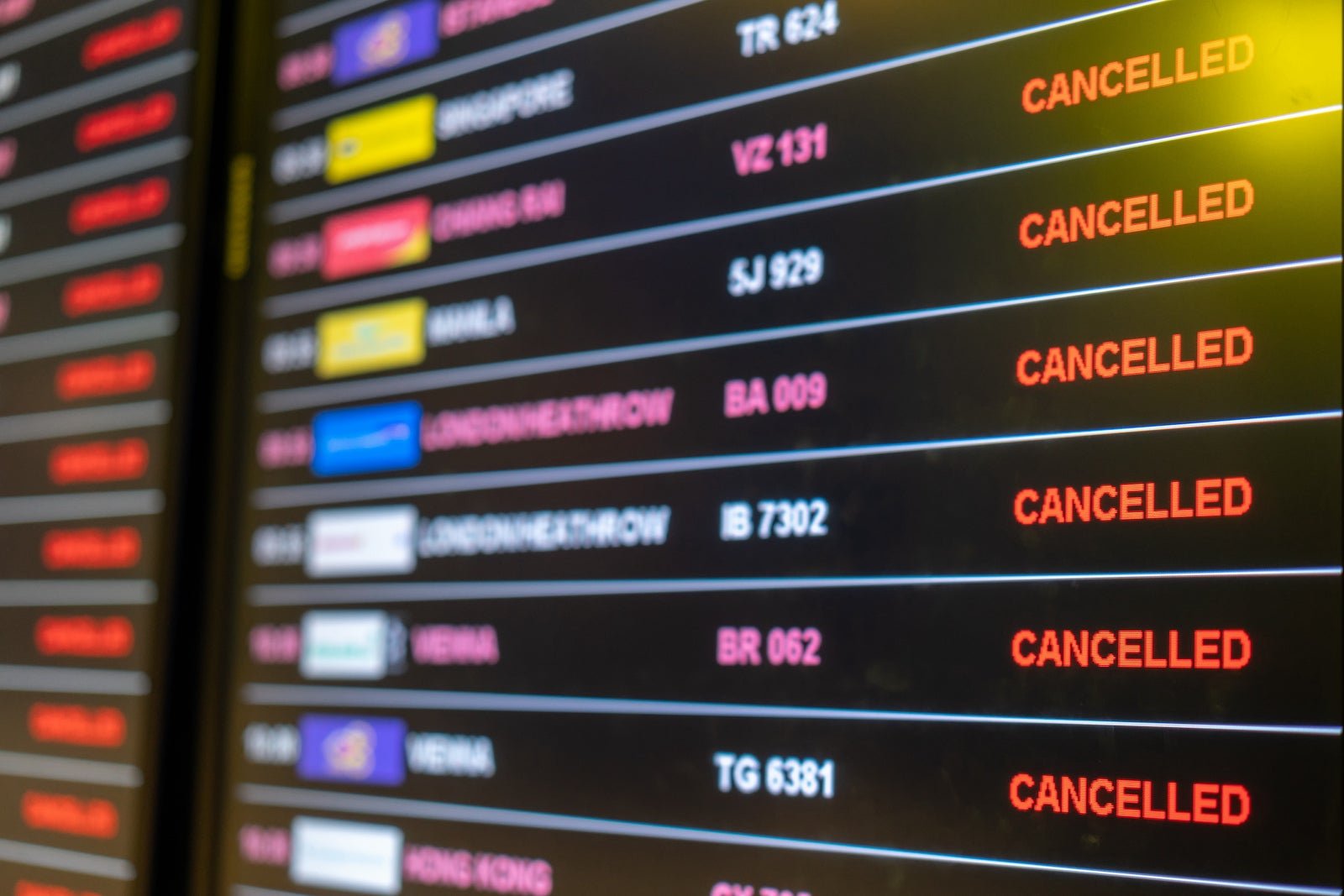As the holiday season approaches, millions of people across the United States are preparing for their travels. The U.S. Transportation Security Administration (TSA) expects to screen more than 2.5 million passengers daily from December 21 to January 2, following the screening of approximately 30 million travelers over Thanksgiving. While the TSA claims to be prepared for the busy winter travel season, holiday travels can often be delayed and canceled due to various factors, including weather conditions.
Last year, nearly 20,000 holiday flights were canceled from the Monday before Christmas due to a winter storm that affected much of the country. In addition, Southwest Airlines experienced an operational meltdown during the holiday season, resulting in significant chaos for travelers. The U.S. Department of Transportation recently fined the airline up to $140 million for its holiday meltdown.
When travel plans go awry over the holidays, especially when heading home to see loved ones, it can be incredibly frustrating. It is important for passengers to understand what they can reasonably expect from an airline in times of stress, such as flight delays or cancellations.
When a flight is canceled or significantly delayed due to reasons outside of a passenger’s control, such as weather or operational issues, it is possible to contact the airline and ask for compensation. While U.S. federal law requires airlines to compensate passengers who cancel their trips in response to a canceled flight, the Department of Transportation determines on a case-by-case basis whether a delayed flight warrants a refund.
Therefore, it is not guaranteed that airlines will provide compensation, but it is still worth being prepared with specific requests. If you need to contact an airline’s customer service department, it is important to remember that you are speaking to a fellow human being who deserves respect. Kindness can go a long way, especially during stressful situations.
In the event of a delayed or canceled flight during the holidays, it is advisable to bookmark this page for future reference. Additionally, if you incurred any extra costs as a result of the cancellation or delay, such as hotel accommodations, rental cars, or meals, it is important to ask the airline if they will cover those expenses. While some airlines offer amenities to stranded passengers, others may not provide any assistance.
If an airline agrees to cover some of these costs, it will most likely be limited to hotels near the airport and meals at the hotel or airport. Booking a luxury hotel downtown is unlikely to be covered. It is also worth noting that some credit cards offer trip delay or trip cancellation insurance, which may provide coverage for these additional costs. The specific terms and conditions of the credit card protection will determine what is covered.
Furthermore, in certain situations, airlines may offer airline miles as compensation for a canceled or delayed flight. If you used airline miles to book your flight and proactively canceled it before departure, you can ask the airline to credit those miles back to your account. Similarly, if you used cash to book a refundable flight that you canceled, you can request a refund.
Airlines may also award bonus miles or flight credits for future travel in response to a canceled flight. Passengers can inquire about receiving extra miles, especially if they hold elite status with the airline. Even passengers without status can request bonus miles for dealing with a bad flight experience.
In terms of refunds for delayed flights, it is important to note that the U.S. legal system does not clearly outline the circumstances that entitle passengers to refunds. Unlike the European Union’s EU 261 regulation, which provides clear guidelines for flight compensation, the U.S. does not have specific regulations for delayed flights. However, it is always worth asking for more than what the airline initially offers.
In conclusion, as the holiday travel season approaches, it is crucial for passengers to be aware of their rights and options when faced with delayed or canceled flights. While airlines are not required to provide compensation for these situations, it is worth contacting them to ask for assistance. Additionally, understanding the coverage provided by credit card protections and knowing how to navigate airline miles can also be beneficial. Being prepared and approaching the situation with kindness and respect can help alleviate some of the frustration that comes with disrupted travel plans during the holidays.

